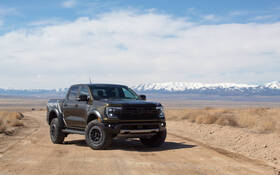2024 Ford Ranger Raptor: Jumping and Racing Through the Desert
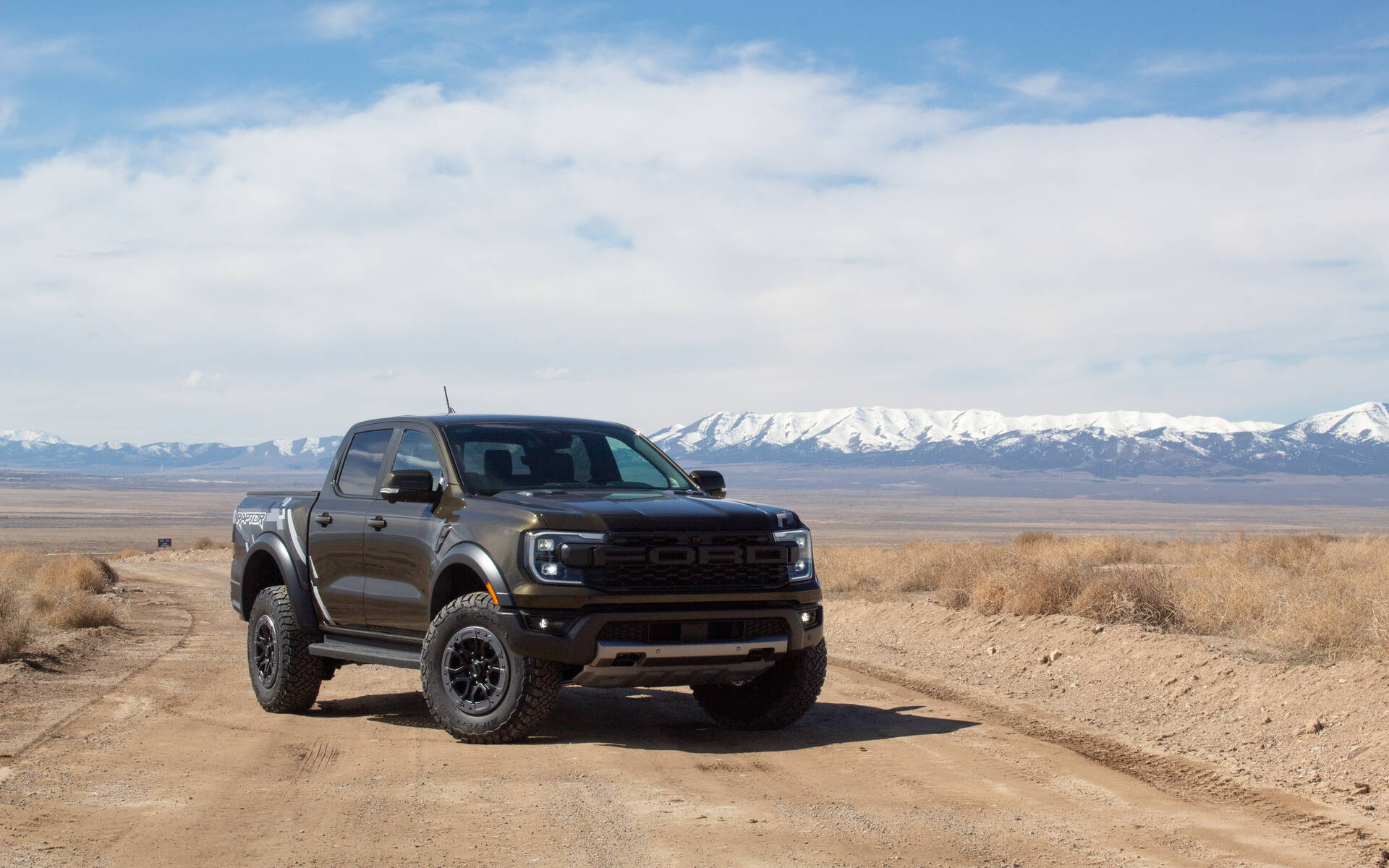
| Strong points |
|
|---|---|
| Weak points |
|
The Australian-developed Ford Ranger Raptor is finally landing in North America. Priced from $77,945 (MSRP), it’s been customized and optimized from the ground up to make sure it could tackle any terrain or condition.
This is the third member of the Raptor family, joining the F-150 Raptor and Bronco Raptor. The modified chassis and larger tracks accommodate an upgraded suspension with longer travel, while a beefier and more explosive powertrain gets things going.
- Also: 2024 Ford Ranger: A Muscular Evolution Lacking an Electrified Option
- Also: Ford to Build More Broncos and Rangers, Fewer F-150 Lightnings
The Car Guide recently stopped by the Ford Performance Racing School in Utah for a chance to put the Ranger Raptor to the test in various off-road conditions. Following a short presentation, we hopped behind the wheel and headed to the Ranger Raptor Assault School (seriously, what a cool name!) for a series of challenges that would highlight the truck’s formidable potential.
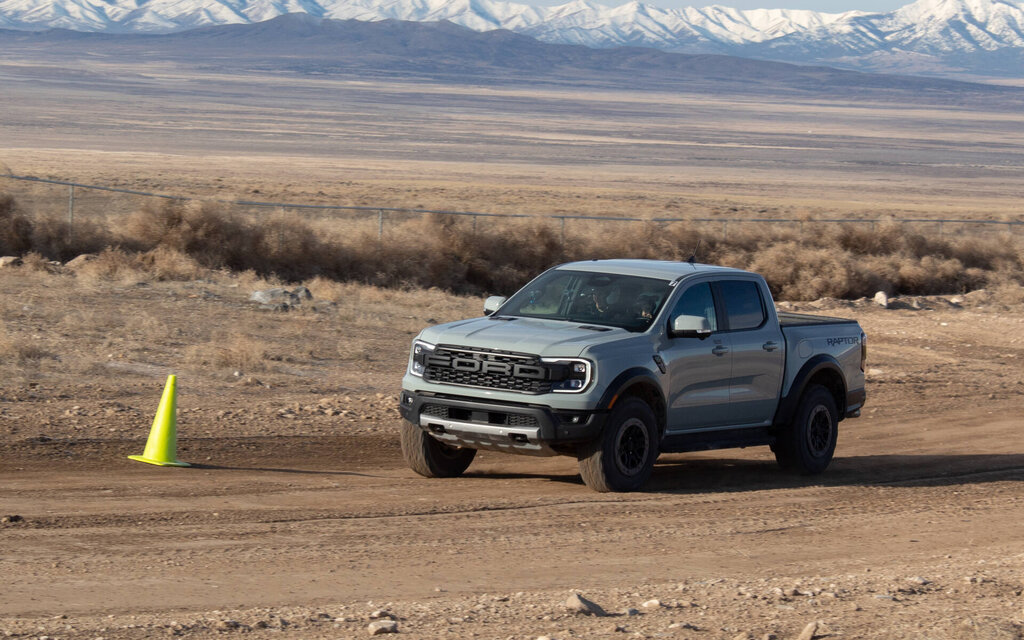
The first challenge was a handling course where we could experiment with three of the available drive modes. Normal is obviously not the best when you want to start drifting since the various electronic nannies come into play fairly quickly, but it was a good way to get familiar with both the venue and the vehicle.
On the next lap, we switched to Off-Road mode, which gave us more freedom with less intervention from traction control. That was a lot of fun, but not nearly as much as when we cranked things up with Baja mode. The latter deactivates all driving aids and sharpens throttle response in order to make the most of the power on tap.
The unbridled, Baja-tuned Ranger Raptor is completely bonkers, and the sound effects generated by the active exhaust system make it all the more exhilarating. We had high expectations coming into this event and it did not disappoint. You still have to be extremely careful, though, because Baja mode is no good at forgiving a driver’s mistakes.
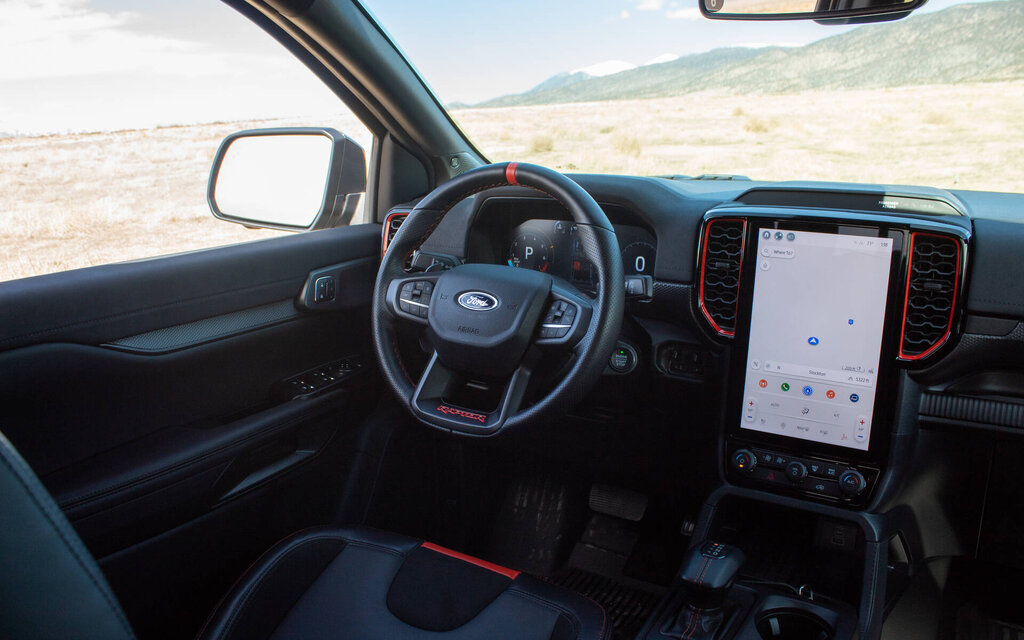
Racing in the Desert
The second challenge Ford had in store for us was a sandy and sometimes muddy desert course involving high-speed manoeuvres. Every lap and every corner was a different story because of all the trucks digging and plowing through them. We felt pretty confident behind the wheel of the the Raptor no matter what.
By the way, with Baja mode on, anti-lag technology keeps the turbochargers spinning for up to three seconds after you back off the throttle, allowing for faster resumption of acceleration out of corners or between gears when you get back on the accelerator. And did we tell you about the sound? It was really intoxicating.
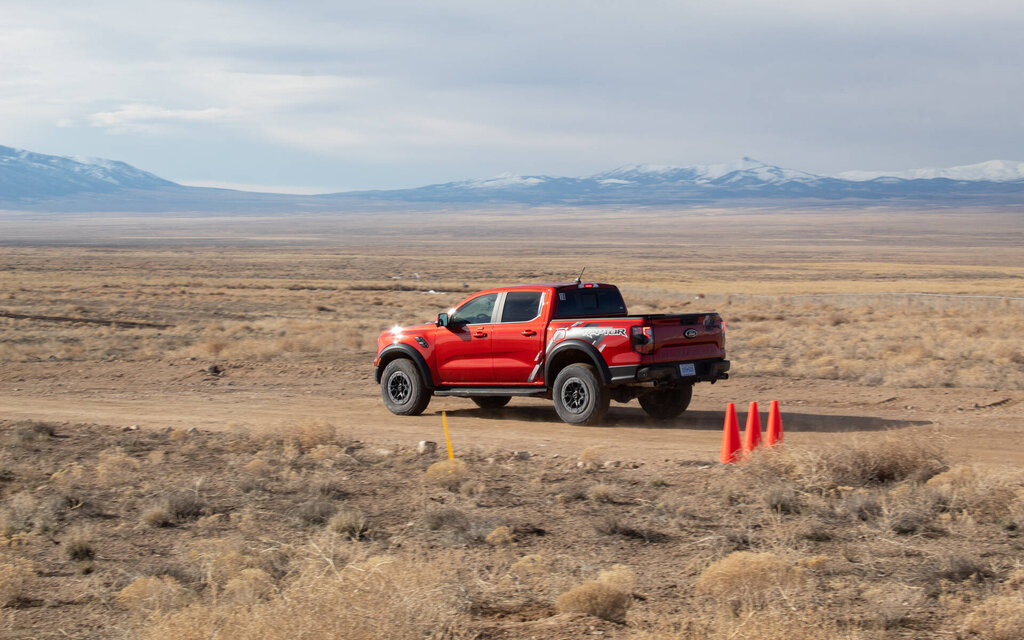
The Ranger Raptor danced its way around corners and moved to attack the next one quite effortlessly. It always seemed to want more, as if to remind us that it was born specifically for this kind of action. And then came the final challenge: air time. With the pedal to the metal, we hit the ramp and jumped off, landing smoothly several feet away... with both a large grin and a sigh of relief on our face.
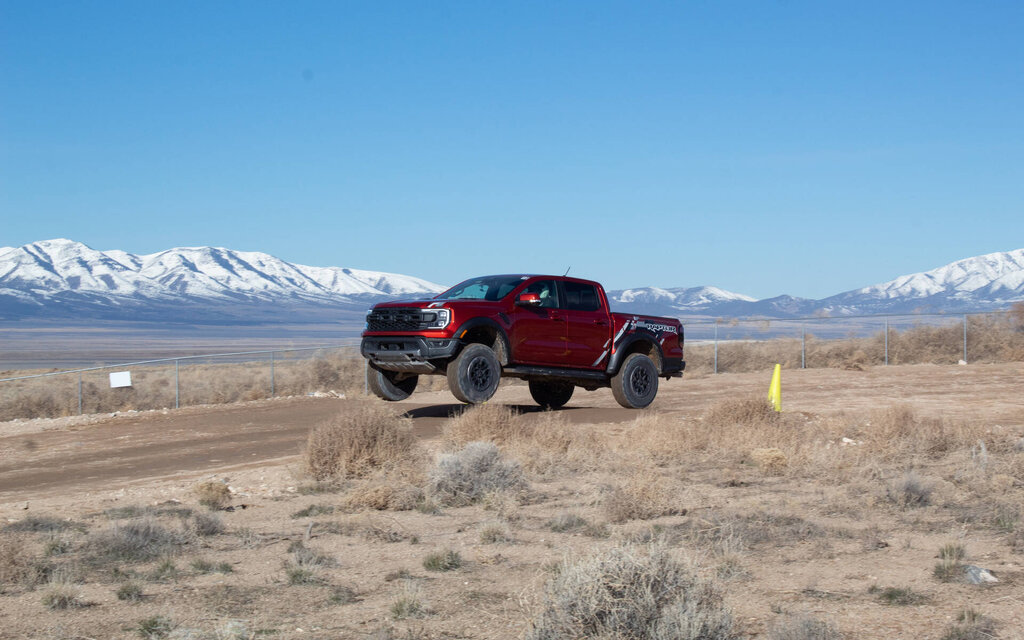
Scaling a Mountain
The second part of the day was more about testing the Raptor’s endurance and solidity. And what better way to do that than scaling a mountain?
Now was the time for the 4WD system and 33-inch BFGoodrich all-terrain KO3 tires to shine. The twisty and rocky trail required locking the rear differential and at some point the front one, too. Unsurprisingly, the truck took it all in stride, even when the gaps were tight. It was a good thing we had several cameras at our disposal to correct the line, mind you. Hill descent control also proved to be marvellously helpful.
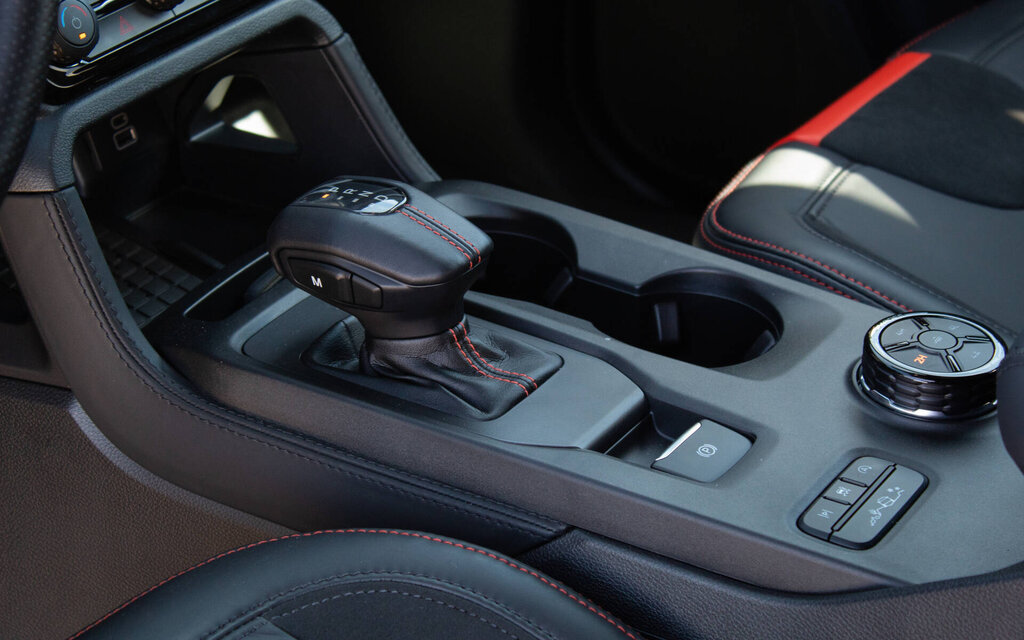
At the end of the day, when it was time to hand over the keys, we felt quite satisfied and thrilled by our experience with the Ford Ranger Raptor. The ride is superb, whether on regular pavement or off-road, steering is precise, and the front buckets provide excellent support. Our only complaints are the lack of torque at low revs (blame the heavy weight) and the shifter that’s a bit confusing at first (the button to shift out of Park is found at the front, while the manual mode button is on the left side).
Ranger vs. Colorado/Canyon
A few months ago, we got the opportunity to drive the Chevrolet Colorado ZR2 Bison in Palm Springs, California and the GMC Canyon AT4X AEV in the Rockies of Montana. Those two are the most rugged and most capable midsize pickups General Motors has ever offered. How do they compare with the Ranger Raptor?
Ford and GM have managed to build extremely impressive off-road trucks, but not exactly for the same reasons and purposes. The Colorado and Canyon are more versatile and better at clearing obstacles thanks to more generous approach and departure angles plus extra ground clearance.
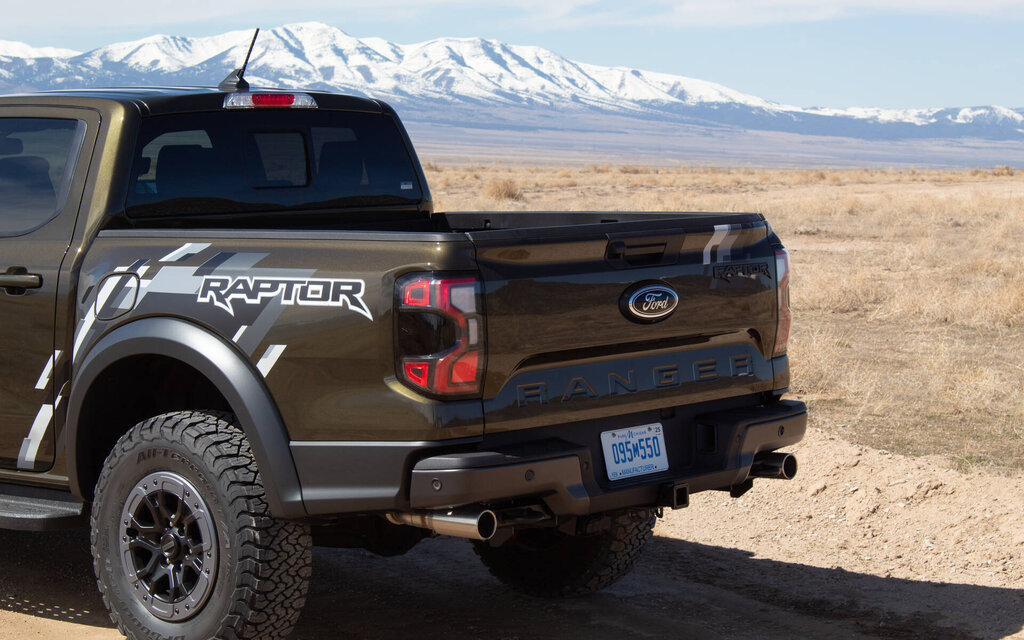
Handling is different, as well, mostly due to the taller suspension and heavier steering. And then there’s the engine. While torque is similar to the Ranger Raptor’s, the 310-horserpower GM duo is significantly lighter and quicker off the line. At higher speeds, however, the Ford truck has the edge thanks to its 405 horsepower.
When it comes to payload and towing capacity, if you somehow care, you’ll be best served by the Ranger Raptor. Ditto if you’re concerned about fuel economy, as the Ford is rated at a combined 14 L/100 km by Natural Resources Canada.
Ultimately, all three pickups are remarkably capable in their own ways. Because of their configuration, the GM representatives work best at lower speeds and in extreme off-road driving. Conversely, the Ranger Raptor excels at high speeds and in the handling department. What’s more important to you?


